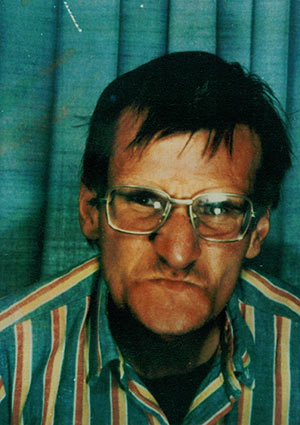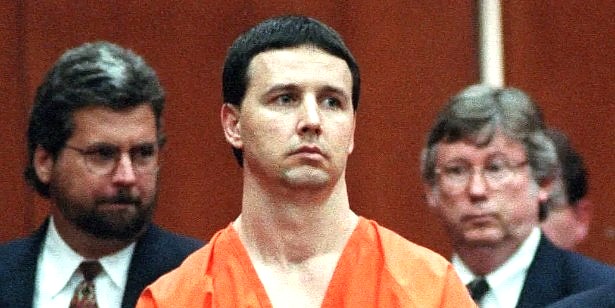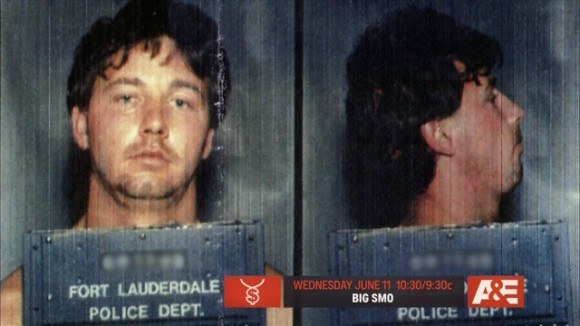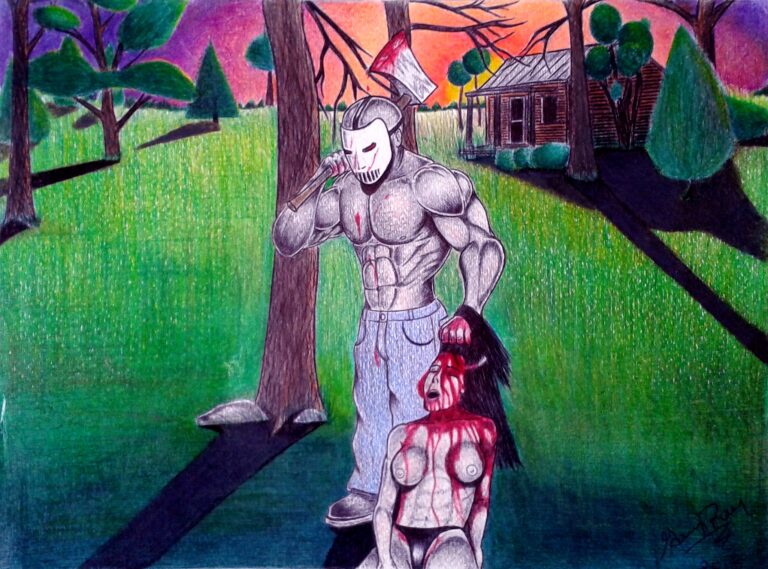Narrative of my correspondence with the French serial killer Francis Heaulme.
(In my book – on french only – “The Words of Evil – My Correspondence with Killers,” you will have the opportunity to discover more in a more developed form, rich in twists and additional anecdotes.)
One of my American correspondents, the Californian serial killer Patrick Wayne Kearney, once provided me with the address of Francis Heaulme. This American, serving a life sentence, had long been in contact with people outside who regularly passed on addresses of other inmates from around the world so he could correspond with them.
Around the beginning of May 2010, Patrick Wayne Kearney sent me a handwritten list of addresses, including those of different serial killers such as Ian Stewart Brady, Guy Georges, Francis Heaulme, and the international terrorist Ilich Ramirez Sanchez, alias “The Jackal.”
I was greatly surprised to discover how easily accessible all these criminal personalities were, once you found the right network. It was surprising, appealing, but also frightening. I ventured into unknown territory for a highly interesting yet profoundly disturbing human experience.
It took me some time to decide to write to Francis Heaulme. His case had always raised significant questions for me, and I was a child when he first gained media attention. At that time, I found him very frightening, like a kind of bogeyman one could encounter anywhere and at any time. When I sent my first letter to correspond with him, I did not expect a response so quickly. Three days later, I received a letter in my mailbox, clumsily written and hard to read. It was indeed from Francis Heaulme, eager and happy to correspond with me.
Here is a short excerpt from his first letter, preserving the original syntax and spelling:
“Mr. David, hello. Thank you for writing to me; it’s very kind of you. Yes, you can write to me, no problem, and thanks for the stamps. I have many people writing to me from all over France and abroad. In one week, 15 letters to write. Many people are interested in responding to me. For me, I have a very hard time; I don’t know when I’ll get out, but we’ll see. But I know one thing, it’s a long process. I’ve been in prison for 18 years, where I am in Ensisheim. I won’t stay in the cell all the time; it’s tough, etc., etc.”
The main content of his subsequent letters discussed his life in prison, the fact that he didn’t associate with other inmates he found strange and mean towards him. He occasionally mentioned his family problems, his deep hatred for his father, and the limitless love he had for his mother. He explained the Klinefelter syndrome he was suffering from, a genetic anomaly characterized by an additional X (female) chromosome in humans.
In a letter dated 29/06/2010, he wrote:
“I wanted to know if you have a computer at home. Because I have Klinefelter’s disease. A syndrome. You will see why I have difficulty making love to a woman. I think you will understand; it’s medical. You will see that this disease I suffer from is for life. I am very unhappy. My sister, she knows when I go to the shower; everyone makes fun of me, so I go at 8 o’clock, so I am alone.”
He then discussed his hormonal treatment with testosterone and his awkward words sometimes revealed his sense of frustration, inferiority complex towards women, and the fact that he considered himself a half-man.
At what seemed like an increasingly infernal pace, I received about three letters per week from Francis Heaulme, and when I delayed in responding, he sent another expressing his confusion. Over time, I felt the need to protect myself psychologically.
Heaulme often spoke to me about his younger sister, whom he seemed to love above all. She was his beacon in the darkness of his existence, his sunshine. His fear was being found guilty in the case of the double infanticide in Montigny-Les-Metz because, in reaction to the verdict, his sister would no longer come to visit him. In his letters, he never mentioned his crimes, just addressing the media coverage of them with more or less pride. His clumsy and misspelled writing gave a childlike character to his letters. Francis Heaulme, a manipulator and pathological liar, regularly told me lies to make himself interesting. From my perspective, I perceived this attitude as an attempt to get closer to me, to find common ground and create a connection or influence.
In one of his letters, Heaulme told me that he had lived in the same city where I lived from 1982 to 1984, during the time we corresponded. It was a blatant lie, and a few searches confirmed this. In 1982, his mother’s illness began, and in 1984, she died after a slow agony. During this period, he lived in Meurthe and Moselle, in northeastern France, not far from the city of Metz. 1984 marked his first murders and the start of his long wandering through France.
In many of his letters, he often told me that I could have been his younger brother since he was older than me. Francis Heaulme often tried to appeal to my emotions. Passionate about philately, he sent me hundreds of stamps he collected from other inmates apparently more lenient with him. Several times, he sent me gifts such as drawings of his hands and feet (for fun, as he put it) and a postcard featuring the French singer and former tennis player Yannick Noah. Noah had come to give a concert at the Ensisheim prison. This card was signed in my name by Yannick Noah; Francis Heaulme had thought to ask for a personalized dedication for me.
Dedicated on the front, the card read: “For David,” followed by a smiley and his signature. On the back of the card, Francis had written: “21/07/2010 I saw Yannick Noah in Ensisheim For you, David.”
Receiving this card was surreal. I held in my hands a card signed by both a famous singer and one of the worst French serial killers of the late 20th century.
Francis Heaulme often talked to me about his interest in everything related to crime in general; he confessed that he often watched the show “Faites entrer l’accusé” (Enter the Accused) through the television screen in his cell. The prison administration didn’t take long to return two large envelopes containing some documents I had sent him, along with a letter warning me about the harmful aspects it could generate for Francis Heaulme. Our correspondence was starting to be censored, and I was informed that it could compromise the inmate’s chances of rehabilitation. Under Article D.414 of the Code of Criminal Procedure, the director of the correctional facility could prohibit my correspondence with Francis Heaulme. The administration kindly invited me to avoid the theme of crime and famous criminals in my letters. Thus, a serial killer or any other type of inmate can feed on audiovisual violence, watch crime-related shows, but is not allowed to receive literature on this theme. I found this contradictory.
One day, I finally received a summons from the Gendarmerie inviting me to come to their premises. This was to learn more about me and my interest in serial killers. Aware of the concerns that such an interest could generate, I was nevertheless aware of my rights and the legality of my correspondence. I was interrogated for 4 hours and warned that such activity could be dangerous for my safety. The gendarmes made photocopies of letters from each of my correspondents, who were eight at the time.
After being warned that I might be frequently summoned to the gendarmerie for my exchanges with Francis Heaulme, despite the legality of my approach, I decided to put an end to it. I informed my correspondent Patrick Wayne Kearney of this interruption and asked him to explain to Francis Heaulme the reasons for the abrupt halt to our correspondence. He expressed his disappointment, but he continued to ask Patrick Kearney about me from time to time.



